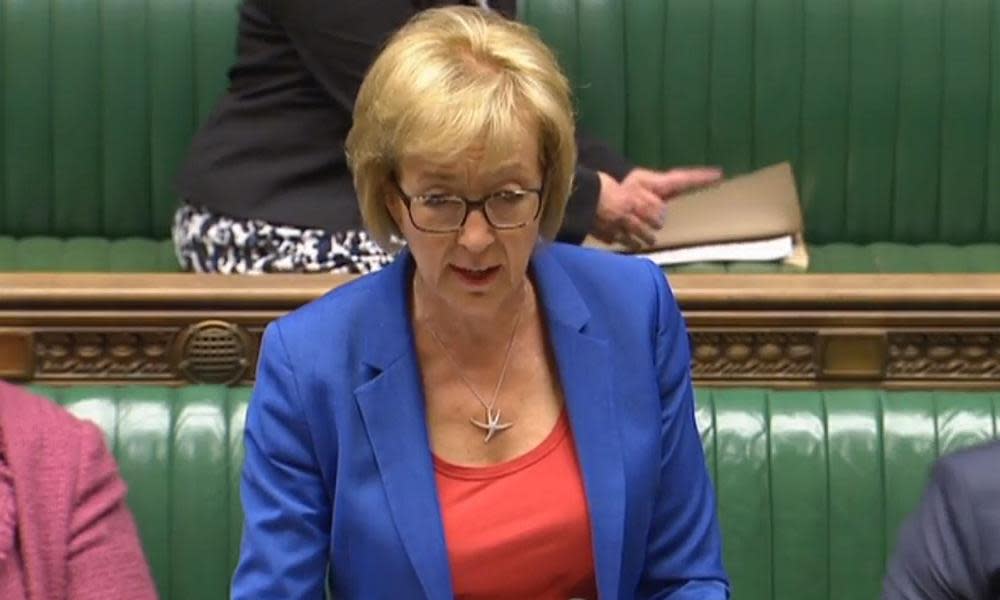Tories 'on very dodgy ground' over delay of air pollution plan, say experts

The government’s attempt to delay publishing its air pollution strategy because of the election is “dishonest” and leaves ministers on “very dodgy ground”, according to constitutional experts.
The government had been under a court direction to produce tougher draft measures to tackle illegal levels of nitrogen dioxide pollution, which is responsible for thousands of premature deaths each year, by 4pm on Monday. The original plans had been dismissed by judges as so poor as to be unlawful.
But after Theresa May called a general election for 8 June, ministers lodged a lengthy application to the court late on Friday. It asked judges to allow them to breach the Monday deadline to “comply with pre-election propriety rules”.
Politicians and environmental groups reacted with anger, claiming ministers were “hiding behind the election” and running scared to the diesel lobby. Health experts warned the persistent lack of government action had potentially put thousands of lives at risk.
The environment minister, Andrea Leadsom, defended the decision during an emergency debate on Monday, saying she was “personally deeply committed to the importance of ensuring clean air”, but had been told by officials in the Cabinet Office that it would breach purdah rules to publish the plans in the run-up to the election.
However, constitutional experts dismissed that claim on Tuesday, saying it was a political choice.
Dr Catherine Haddon, a constitutional expert at the Institute for Government, said purdah should not have prevented the publication of the report or the subsequent consultation. “There is nothing in their own purdah guidance that prevents them publishing this if they had wanted to.”
She said the government had started the purdah period – which normally only kicks in once parliament has been dissolved – unusually early. And even then, she added, there was an exemption once purdah is active for issues that are deemed to be safeguarding public health.
“In the end it was a political choice to implement purdah early and interpret the guidance in this way,” she said.
Colin Talbot, professor of government at Manchester University, said the government was on “very dodgy ground”.
“Purdah rules normally only come into effect when parliament is dissolved, not as soon as an election is called. In this case it is quite clear they have stretched the definition considerably.”
He said the move seemed to be overtly political. “They have stretched the time limit, it has no legal standing and it seems to be completely selective – they are settling other bits of legislation and government announcements – so I think it is pretty clear they are just using this as an excuse not to put out this particular policy statement.”
Dr Jo Murkens, an expert in constitutional law at the London School of Economics, said citing purdah not only went “against the spirit of this court judgment, it is also dishonest.”
He also believed the government was on shaky legal ground. He cited the black spider memo case when the government tried to get round a judicial decision to release Prince Charles’s letters.
“The supreme court said in no uncertain terms that a governmental veto was impermissible – a judicial decision, even one from a lowly tribunal, is binding on the government.
“If you apply that here you have on the one hand a political convention with no legal weight regulating restrictions during the purdah period, and on the other hand a legally binding decision of the high court. The government should not be able to use purdah to thwart an order from the high court.”
The scale of the air pollution crisis, which is responsible for 40,000 premature deaths a year, was revealed in a joint Guardian-Greenpeace investigation this month. It showed hundreds of thousands of children were being educated within 150 metres of a road where levels of nitrogen dioxide from diesel traffic breached legal limits.
Last week figures obtained by Labour showed that more than 38 million people, representing 59.3% of the UK population, were living in areas where levels of nitrogen dioxide pollution were above legal limits.
The government has now been ordered back to the high court on Thursday to defend its application to delay its air quality plan.
James Thornton, CEO of the environmental lawyers ClientEarth, who brought the original case against the government, said its lawyers would present their response at the hearing.
“This is a matter for the court to decide once the government has made its arguments because it is the government which has not met, and instead seeks to extend, the court’s deadline for the clean air plan, to clean up our air.”
Leadsom, who also revealed that it was the second application to delay publication that her department had submitted to the courts, insisted the move would not postpone the rollout of the proposals.
She said it showed the government was “safeguarding” democracy by not using the machinery of government for electoral advantage, and that the plan was now to issue the draft proposals on 30 June, followed by the full policy in September.

 Yahoo News
Yahoo News 
